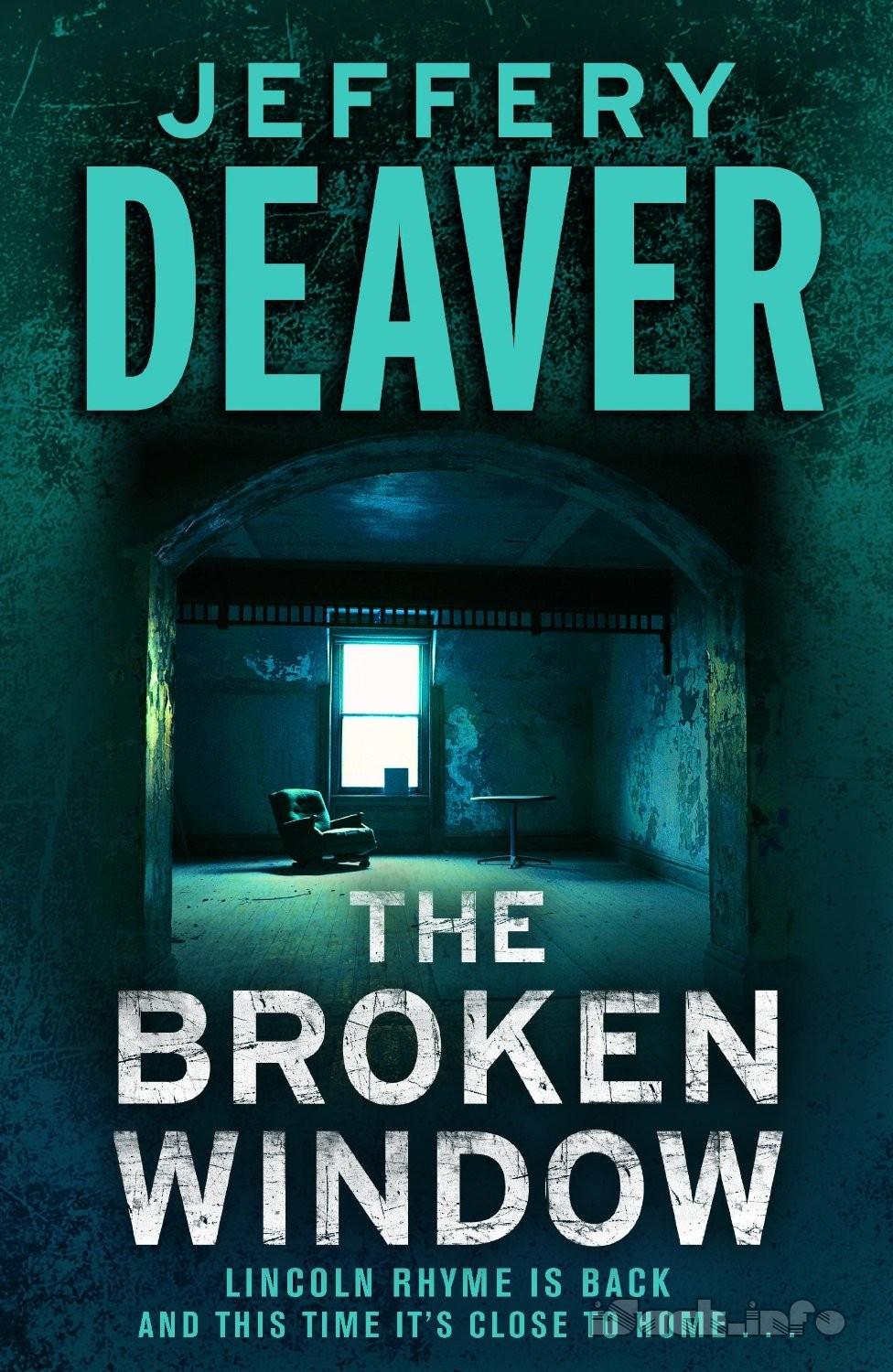Chapter 53
T
he phone trilled.Lincoln Rhyme glanced up at a nearby computer screen, where caller ID displayed “44.”
At last. This was it.
“Command, answer phone.”
“Detective Rhyme,” said the impeccable British voice. Longhurst’s alto never gave anything away.
“Tell me.”
A hesitation. Then: “I’m so sorry.”
Rhyme closed his eyes. No, no, no…
Longhurst continued, “We haven’t made the official announcement yet but I wanted to tell you before the press reported it.”
So the killer had succeeded after all. “He’s dead then, Reverend Goodlight?”
“Oh, no, he’s fine.”
“But—”
“But Richard Logan got his intended target, Detective.”
“He got…?” Rhyme’s voice faded as the pieces began coming together. The intended target. “Oh, no… Who was he really after?”
“Danny Krueger, the arms dealer. He’s dead, two of his security people too.”
“Ah, yes, I see.”
Longhurst continued, “Apparently after Danny went straight, some cartels in South Africa, Somalia and Syria felt he was too great a risk to stay alive. A conscience-stricken arms dealer made them nervous. They hired Logan to kill him. But Danny’s security network in London was too tight so Logan needed to draw him out into the open.”
The reverend had been merely a diversion. The killer himself had planted the rumor that there was a contract out on Goodlight. And he’d forced the British and the Americans to turn to Danny for help to save the reverend.
“And it’s worse, I must say,” Longhurst went on. “He got all of Danny’s files. All his contacts, everybody who’s been working for him—informants, warlords who could be turned, mercenaries, bush pilots, sources of funds. All the potential witnesses will go to ground now. The ones who aren’t killed outright, that is. A dozen criminal cases’ll have to be dismissed.”
“How’d he do it?”
She sighed. “He was masquerading as our French liaison, d’Estourne.”
So the fox had been in the henhouse from the beginning.
“I would guess he intercepted the real d’Estourne in France on the way to the Chunnel, killed him and buried the body or dumped it at sea. It was brilliant, I must say. He researched everything about the Frenchman’s life and his organization. He spoke perfect French—and English with a perfect French accent. Even the idioms were spot-on.
“A few hours ago some chap shows up at a building in the London courtyard shooting zone. Logan had hired him to deliver a package. He worked for Tottenham Parcel Express; they wear gray uniforms. Remember the fibers we found? And the killer had requested a particular driver he claimed he’d used before—who happened to be blond.”
“The hair dye.”
“Exactly. Dependable fellow, Logan said. Which is why he wanted him in particular. Everyone was so focused on the operation there, tracking this fellow through the shooting zone, looking for accomplices, worried about diversionary bombs, that the people in Birmingham lowered their guard. The killer just knocked on the door to Danny’s room in the Hotel Du Vin, while most of his security team were down in the champagne bar having a pint. He started shooting—with those dum-dum bullets. The wounds were horrible. Danny and two of his men were killed instantly.”
Rhyme closed his eyes. “So no fake transit papers.”
“All a diversion… It’s a bloody awful mess, I’m afraid. And the French—they’re not even returning my calls… I don’t even want to think about it.”
Lincoln Rhyme couldn’t help but wonder what would have happened if he’d stuck with the case, searched the scene outside Manchester with the high-def video system. Would he have seen something that revealed the true nature of the killer’s plan? Would he have decided that the Birmingham evidence too was planted? Or was there something that might have led him to conclude that the person who’d rented the room—the man he was so desperate to catch—was masquerading as the French security agent?
Was there something he might have seen at the NGO office break-in in London?
“And the name Richard Logan?” Rhyme asked.
“Wasn’t his, apparently. A complete alias. He stole somebody’s identity. It’s surprisingly easy to do, apparently.”
“So I’ve heard,” Rhyme said bitterly.
Longhurst continued, “One rather odd thing, though, Detective. That bag that was to be delivered in the shooting zone by the Tottenham chap? Inside was—”
“—a package addressed to me.”
“Why, yes.”
“Was it a watch or clock, by any chance?” Rhyme asked.
Longhurst barked an incredulous laugh. “A rather posh table clock, Victorian. How on earth did you possibly know?”
“Just a hunch.”
“Our explosives people checked it. It’s quite safe.”
“No, it wouldn’t be an IED… Inspector, please seal it in plastic and ship it over here overnight. And I’d like to see your case report when it’s finished.”
“Of course.”
“And my partner—”
“Detective Sachs.”
“That’s right. She’ll want to video interview everybody involved.”
“I’ll put together a dramatis personae.”
Despite his anger and dismay, Rhyme had to smile at the expression. He loved the Brits.
“It’s been a privilege to work with you, Detective.”
“And with you too, Inspector.” He disconnected, sighed.
A Victorian clock.
Rhyme looked at the mantelpiece, on which was displayed a Breguet pocket watch, old and quite valuable, a gift from the very same killer. The watch had been delivered here just after the man had escaped from Rhyme on a cold, cold day in December not so long ago.
“Thom. Scotch. Please.”
“What’s wrong?”
“There’s nothing wrong. It’s not breakfast time and I want some scotch. I passed my physical with flying colors and the last time I looked you weren’t a Bible-thumping, teetotaling Baptist. Why the hell do you think there’s something wrong?”
“Because you said ‘please.’”
“Very funny. Quite the wit today.”
“I try.” But he frowned as he studied Rhyme and read something in his expression. “Maybe a double?” he asked softly.
“A double would be lovely,” Rhyme said, lapsing into Brit English.
The aide poured a large tumblerful of Glenmorangie and arranged the straw near his mouth.
“Join me?”
Thom blinked. Then he laughed. “Maybe later.” It was the first time, Rhyme believed, that he’d ever offered his aide a drink.
The criminalist sipped the smoky liquor, staring at the pocket watch. He thought of the note the killer had included with the timepiece. Rhyme had long ago memorized it.!!!The pocket watch is a Breguet. It is the favorite of the many timepieces I have come across in the past year. It was made in the early 1800s and features a ruby cylinder escapement, perpetual calendar and parachute anti-shock device. I hope you appreciate the phases-of-the-moon window, in light of our recent adventures together. There are few specimens like this watch in the world. I give it to you as a present, out of respect. In my years at this profession, no one has ever stopped me from finishing a job; you’re as good as they get. (I would say you’re as good as I, but that is not quite true; you did not, after all, catch me.)!!!Keep the Breguet wound (but gently); it will be counting out the minutes until we meet again.!!!Some advice—If I were you, I would make every one of those seconds count.
You’re good, Rhyme spoke silently to the killer.
But I’m good too. Next time, we finish our game.
Then his thoughts were interrupted. Rhyme squinted, looking away from the watch and focusing out the window. Something had caught his eye.
A man in casual clothing was dawdling on the sidewalk across the street. Rhyme maneuvered his TDX to the window and looked out. He sipped more whisky. The man stood beside a dark overpainted bench in front of the stone wall bordering Central Park. He was staring at the town house, hands in his pockets. Apparently he couldn’t see that he was being observed from inside the town house’s large window.
It was his cousin, Arthur Rhyme.
The man started forward, nearly crossing the street. But then he stopped. He walked back to the park and sat on one of the benches facing the town house, beside a woman in a running suit, sipping water and bobbing her foot as she listened to her iPod. Arthur pulled a piece of paper out of his pocket, looked at it and put it back. His eyes returned to the town house.
Curious. He looks like me, Rhyme reflected. In all their years of comradeship and separation, he’d never realized it.
Suddenly, for some reason, his cousin’s words from a decade ago filled his mind:!!!Did you even try with your father? What do you think he felt, having a son like you, who was a hundred times smarter than he was? Going off all the time because he’d rather hang out with his uncle. Did you even give Teddy a chance?
The criminalist shouted, “Thom!”
No response.
A louder summons.
“What?” the aide asked. “You finished the scotch already?”
“I need something. From the basement.”
“The basement?”
“I just said that. There’re a few old boxes down there. They’ll have the word ‘Illinois’ on them.”
“Oh, those. Actually, Lincoln, there are about thirty of them.”
“However many.”
“Not a few.”
“I need you to look through them and find something for me.”
“What?”
“A piece of concrete in a little plastic box. About three by three inches.”
“Concrete?”
“It’s a present for someone.”
“Well, I can’t wait for Christmas, to see what’s in my stocking. When would you—?”
“Now. Please.”
A sigh. Thom disappeared.
Rhyme continued to watch his cousin, staring at the front door of the town house. But the man wasn’t budging.
A long sip of scotch.
When Rhyme looked back, the park bench was empty.
He was alarmed—and hurt—by the man’s abrupt departure. He drove the wheelchair forward quickly, getting as close to the window as he could.
And he saw Arthur, dodging traffic, making for the town house.
Silence for a long, long moment. Finally the doorbell buzzed.
“Command,” Rhyme said quickly to his attentive computer. “Unlock front door.”
Author’s Note
Calvin Geddes’s comment about a “brave new world” is, of course, a reference to the title of Aldous Huxley’s 1932 futuristic novel about the loss of individual identity in a supposedly utopian society. The book remains as harrowing as ever, as does George Orwell’s 1984.
Readers wishing to know more about the issue of privacy might want to peruse some of the following organizations’ Web sites: Electronic Privacy Information Center (EPIC.org); Global Internet Liberty Campaign (www.gilc.org); In Defense of Freedom (www.indefenseoffreedom.org); Internet Free Expression Alliance (http://ifea.net); The Privacy Coalition (http://privacycoalition.org); Privacy International (www.privacyinternational.org); Privacy.org (www.privacy.org); and the Electronic Frontier Foundation (www.eff.org).
I think you’ll also enjoy—and be unnerved by—the excellent book from which I borrowed several quotations to use as epigrams, No Place to Hide, by Robert O’Harrow, Jr.
Those who’d like to know more about how Amelia Sachs came to meet Pam Willoughby might wish to read The Bone Collector, and their follow-up story in The Cold Moon. Similarly, The Cold Moon describes Lincoln Rhyme’s first meeting with the killer whom he and Inspector Longhurst try to capture in this novel.
Oh, and be sure to keep an eye on your identity. If you don’t, there’re plenty of people out there who will.



 ePub
ePub A4
A4